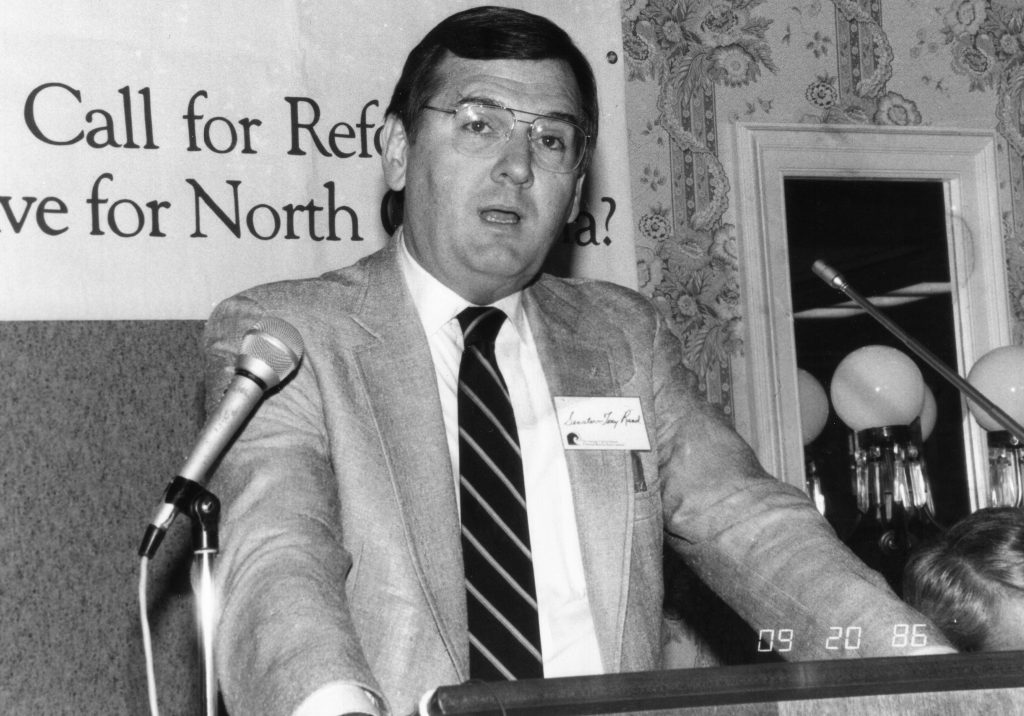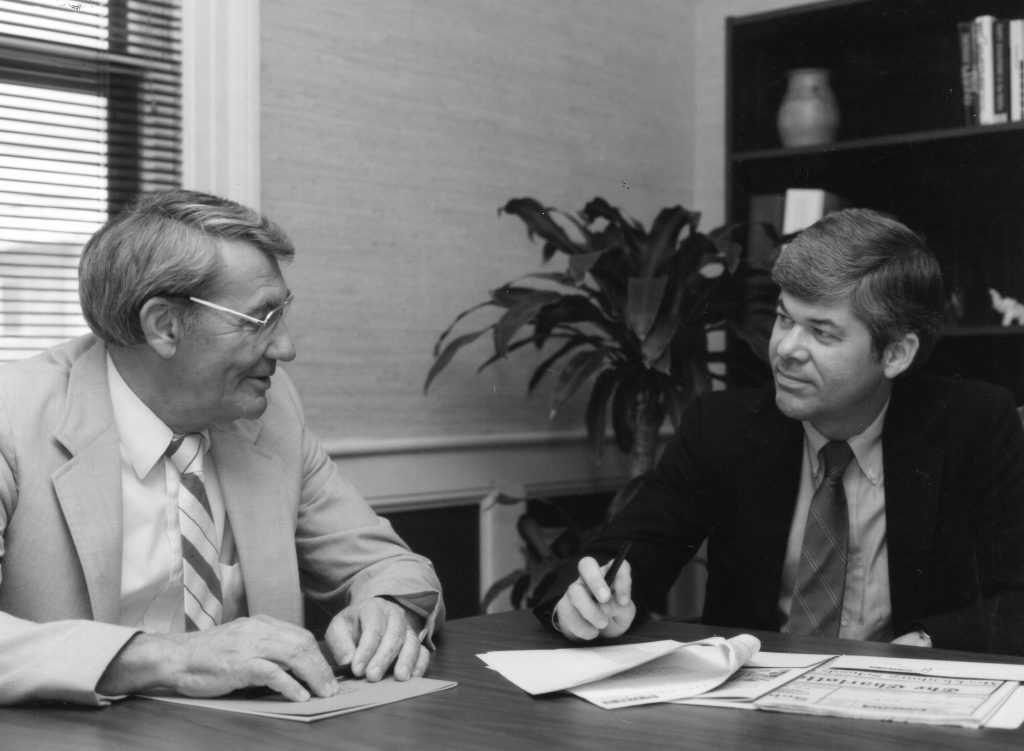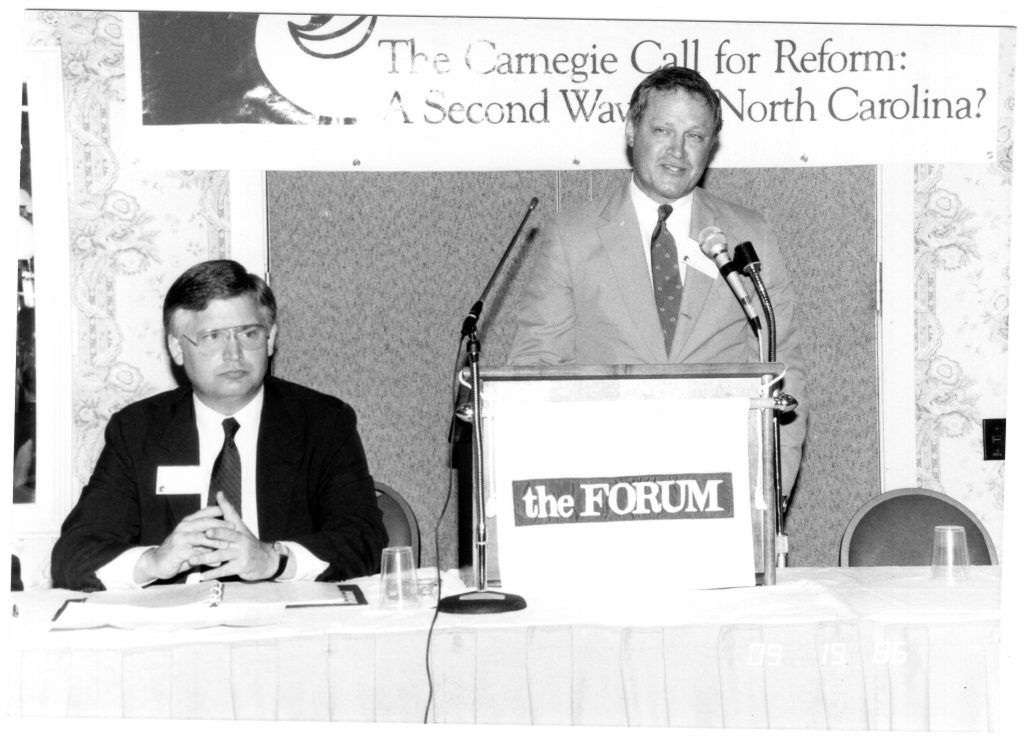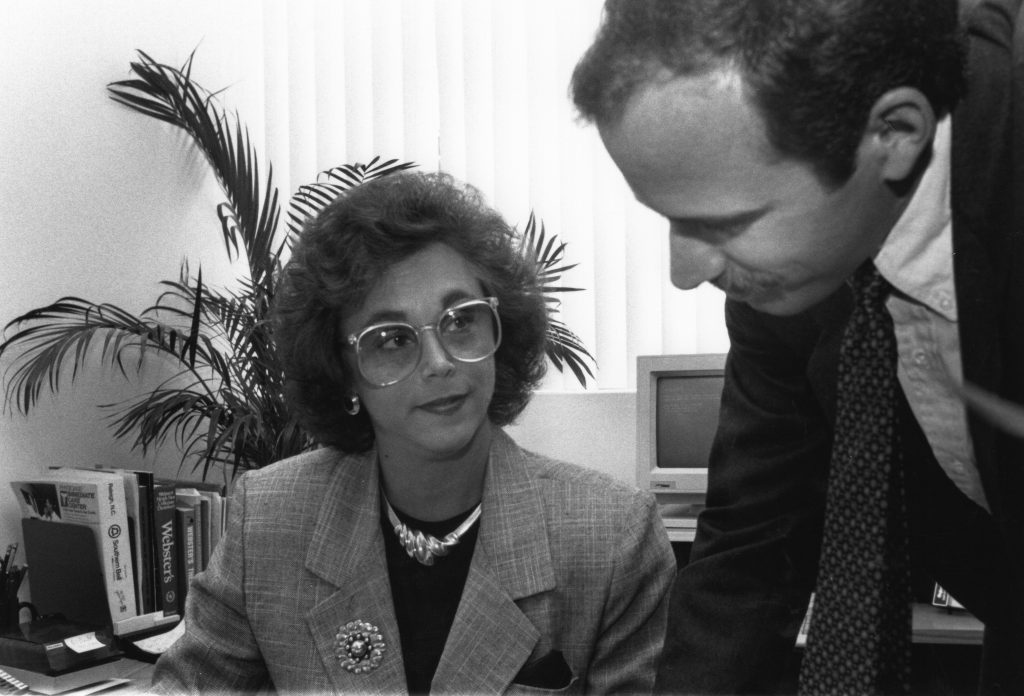For nearly 40 years the Public School Forum of North Carolina has served as an indispensable and nonpartisan champion of better schools. We bring together individuals and institutions from business, education and government to study education issues, develop ideas, seek consensus, and ultimately inform and shape education policy.
“The Public School Forum of North Carolina has always been a leader in this state in bringing business, educators and policy makers together to build consensus around on how best to move education forward and help all our children achieve their highest potential.”
Jim Hunt
Former Governor
North Carolina
From the start, a key purpose of the Forum has been to “speak truth to power.” We consistently and diligently have served as an informed and honest messenger, regardless of the politics. We have made it our job to be objective, engage diverse groups, ask smart questions, listen carefully, conduct evidence-based research, develop innovative ideas and programs, provide support, build consensus, and inform and shape education policy. We always advocate for what is best for the children of North Carolina, not just what seems politically possible in the moment.
Through the research and ideas we produce, the programs we develop and lead, the information we publish, the partnerships we form, and the citizen engagement we develop, the Public School Forum advances the cause of public education in North Carolina.
Our Vision
All North Carolina children shall have the opportunity to reach their full potential through equitable and meaningful public education that nourishes our state’s civic and economic vitality.
Our Mission
To inspire meaningful action on North Carolina’s most important public education issues.
Our History




The Public School Forum of North Carolina opened its doors in 1986. Those involved in its creation point to a unique set of circumstances at the time:
A sense of crisis….
Nationally, the publication of “A Nation at Risk” in 1983 sounded the alarm for public education, concluding that our schools were not doing the job required for the future. At the same time, North Carolina ranked near the bottom in key education measures.
A changing economy….
By the mid-1980s, it was clear that the traditional engines of the state’s economy – textiles, furniture, small farming and tobacco – were declining. North Carolina’s business and political leaders recognized that new economic strategies would be required to compete in the future, and a more educated workforce would be critical to success.
“One day we’re insiders, sitting at the table where decisions are made; the next, whistle blowers, challenging the status quo. We’re a think tank, studying the issues; an active participant, creating and running programs; a convener; bringing together all the parties to consider solutions, a player in the political arena, helping to turn the best ideas into action.”
John Dornan
Founding Executive Director
Public School Forum of NC
Gridlock over education….
The state’s education arena was characterized by conflict, between the elected superintendent and State Board of Education and among various groups representing special interests inside and outside of education.
History of public-private partnership….
The public and private sectors have worked closely together throughout North Carolina’s history. Innovative public-private partnerships have produced impressive results including the state’s Research Triangle Park, MCNC and the NC Rural Center. The creation of a public-private partnership was, therefore, a natural response to the need to improve education.
These circumstances led legislative, business and education leaders to believe that North Carolina needed a permanent organization that could carry the banner for public schools over the long haul…an organization that could transcend administrations, political affiliations and education factions…an organization that knew where the state’s schools had been and could envision where they could and should be.
That belief was the start of the Public School Forum of North Carolina.
The list of those involved at the beginning reads like a “Who’s Who” of North Carolina decision-makers at that time: Sen. Gerry Hancock; Rep. Dan Blue; Rep. Martin Lancaster; Sen. Tony Rand; Lt. Governor Bob Jordan; Dr. Jay Robinson, Superintendent of Charlotte-Mecklenburg Schools; Gene Causby, Executive Director of the North Carolina School Boards Association; Betty West, President of the North Carolina Association of School Administrators; John Dornan, Executive Director, North Carolina Association of Educators; Dick Daugherty, Vice President of IBM; Sherwood Smith, President and CEO of Carolina Power and Light Company; and Tom Lambeth, Executive Director of the Z. Smith Reynolds Foundation.
After a series of meetings with an ever-expanding group, what emerged was an organization that was envisioned to be a standing blue ribbon commission on schools and the economy. The new organization would not have members or membership chapters. Instead it would consist of a large board of directors with representatives of business, policymakers and educators and a staff that would be based in the state capital.
In 1985, the Z. Smith Reynolds Foundation made a start-up grant to the new organization. Carolina Power and Light (now part of Duke Energy) donated free office space and other corporations like IBM provided start-up financial support. In 1986, the Public School Forum began its work.
Original Mission Statement
To contribute to a statewide system of schooling that is second to none.
Original Goals
- To create a bridge between elected officials, educators and business leaders committed to school improvement
- To build consensus around solutions and initiatives aimed at strengthening our schools
- To serve as a credible source of information and research on these issues
